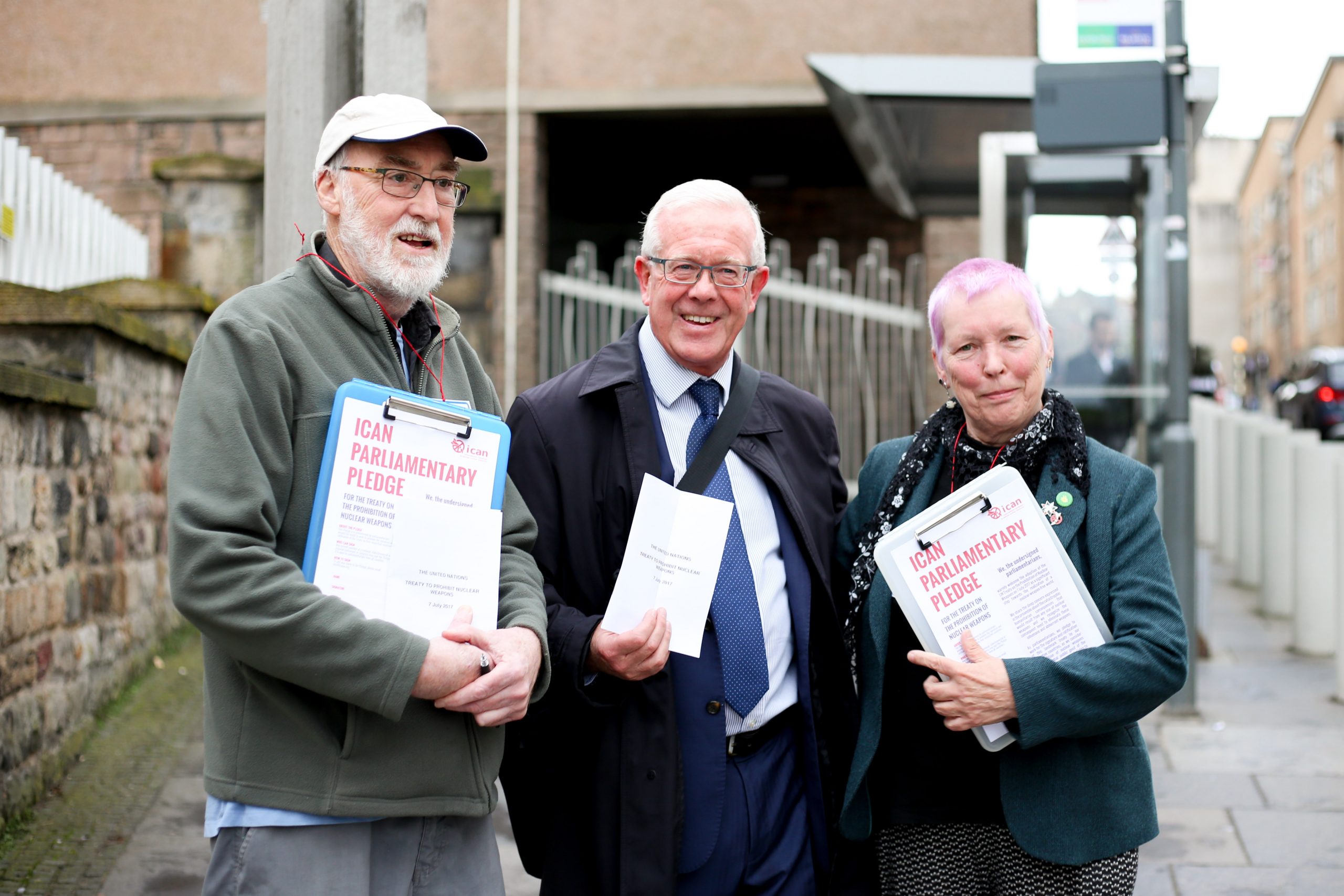On Wednesday September 20, campaigners convened outside Holyrood to stage a symbolic “Citizen Signing” ceremony, as the first legally-binding UN Treaty for the Prohibition of Nuclear Weapons (TPNW) opened for signatures at the United Nations Headquarters in New York.
The TPNW prohibits states from “developing, testing, producing, manufacturing and otherwise acquiring, processing, stockpiling, transferring, using or threatening the use of nuclear weapons.”
This landmark treaty was passed by the UN on July 17 2017 following months of discussion.
Once 50 states ratify the treaty this September, it will enter into force.
Janet Fenton, vice chair of Scotland CND was in New York at the conference and told The Student that this was a “very, very important day” for her as “finally, after all these years, the UN had adopted a treaty that prohibits these weapons and would lead to their complete elimination.”
Campaigner David McKenzie told The Student: “it’s a big time in world history because the power today has been in the nuclear armed states’ hands, good, bad and ugly, but the whole business of the global ban treaty is that it’s the minority countries that are the ones who would suffer from nuclear weapons.”
The US, UK, and France have issued a joint statement stating that they “do not intend to sign, ratify or ever become party to it.”
Arthur West, chair of Scottish Campaign for Nuclear Disarmament (Scotland CND), described this as “absolutely disgraceful” and said that the UK “will be under pressure to start to engage with the treaty.”
He further mentioned that if the UK does not ratify the treaty in the coming days, “the government will be in a situation where they are going against international law” as the treaty has already been ratified by more than 50 member states.
The entirety of the UK’s nuclear arsenal is based in Scotland, which is only represented at the UN as part of the UK.
Talking to The Student, Rebecca Johnson, a founding chair of the International Campaign to Abolish Nuclear Weapons (ICAN), stated, “an overwhelming majority of Scots have time and time again, through the ballot box, through opinion polls, said we want rid of trident”.
“Everyone knows there’s no economic case, no political case and no security case for Trident.”
Agreeing with her, David McKenzie commented, “Scotland’s position is clear, our parliamentarians are overwhelmingly against UK’s nukes.”
The importance of Scotland’s position is further enhanced, as it is the only viable location for the UK’s nuclear arsenal and Trident.
Bill Kidd, MSP for Glasgow Anniesland and Convenor of the Cross Party group in the Scottish Parliament on Nuclear Disarmament told The Student that he has “met people from so many countries around the world who know about Scotland’s position and about the fact that we do want these things removed”.
He attended the Citizens Signing on Wednesday to “speak to people to raise signatures from MSPs to support the nuclear ban treaty.”
He told The Student that another key aim of the symbolic signing was to “spread the campaign much wider,” as “many people don’t actually realise that warheads are being transported past their house and through their towns and villages”.
At the protest, there was a general sentiment that Scotland could be much more assertive with their opinion on the issue of the UK’s Nuclear Disarmament.
“I don’t think our parliament and government have quite got this yet, how important Scotland’s position in the world is, so we need to be much more assertive,” said David McKenzie.
“It isn’t Westminster that’s the big audience, it’s the world.”
Image: Sara Konradi/Photo Editor

